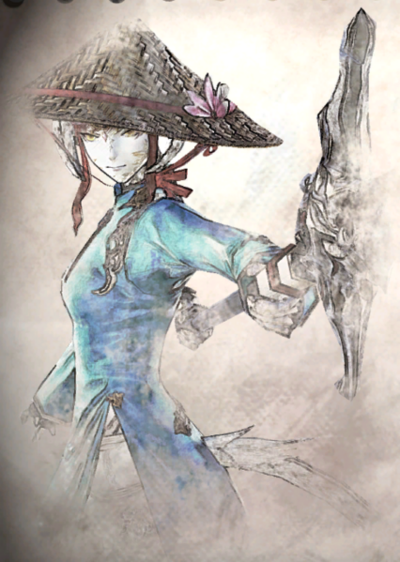Field Notes on Atori
Field Notes on Atori
- Item type
- Other
- Material type
- Miscellany
- Rarity
- Basic
- Vendor Value
 8
8- Patch
- 5.55
- Links
- EDB GT TC
“Handwritten notes on the history and character of the ambitious Nagxian resistance fighter, Atori Moribe.
Use to add to your field record.
— In-game description
Field Notes on Atori is a part of the Save the Queen Field Records.
Acquisition
- Of Beasts and Braggadocio (X:24.1, Y:37.5)
- The Beasts Are Back (X:25.5, Y:14.3)
Used For
Field Records
- Use to add Atori Moribe (#31) to the field record. Rarity: ★
Exchange
| Item | Vendor | Location / Coordinates | Section | Cost | Unlock req. |
|---|---|---|---|---|---|
| Zadnor Lockbox | Resistance Historian | The Bozjan Southern Front (15, 29.1) | Field Notes Exchange (Lockbox) | 1 Field Notes on Atori | — |
| Bozjan Mythril Coin (5) | Resistance Historian | The Bozjan Southern Front (15, 29.1) | Field Notes Exchange (Other) | 1 Field Notes on Atori | — |
Description

- Race: Au Ra
- Age: 29
- Birthplace: Dagluk, Southern Nagxia
Though born and raised in the southern reaches of Nagxia, her lineage can be traced back to Doma. Indeed, for several generations her family thrived in Nagxia making the land's culture their own, all the while dutifully upholding their Doman traditions. Unfortunately, her family line was cut woefully short twenty-six years prior, and Atori must now uphold these traditions on her own.
Under the command of the XIth Legion, the XVIIth infantry division was dispatched to invade the mountainous regions of southern Nagxia. While the Nagxian resistance lacked a comparable martial force, they were not without cunning. Rather than attack directly, they relied on their knowledge of the land, assailing the imperials via surprise raids and ambushes. The Nagxian resistance was relentless, stalking the imperials both by the light of day and in the dead of night. Thus the XVIIth infantry was deprived of rest, kept constantly on edge, and before long it was clear these tactics had taken their toll. Even so, no one could have foreseen what would befall the village of Dagluk.
It was a small village, and without the immediate aid of the resistance, the people found little recourse but to submit to the imperials' authority, offering up what little food and water they could afford to forestall uncertain death. Their uneasy peace would be broken, however, when an ale-sodden imperial soldier thought to assault a hapless villager. They tried to defend themself, but the drunken soldier escalated the altercation, and before long the villager was dead. When questioned by his superiors, the soldier claimed he was assaulted by the resistance, but the villagers knew the truth. Torches and tools in hand, they demanded the imperials leave Dagluk. But their cries of anger were answered only with gunfire.
The massacre of Dagluk's people was initially reported as the result of a bloody battle with the Nagxian resistance. But survivors from the village would give the lie to these claims, the dark truth made painfully clear when a soldier of the XVIIth infantry at last came forward, unable to bear the weight of his conscience. The unit was then recalled to the imperial capital where it was summarily dissolved. Emperor Varis was quick to denounce the infantry's actions, but the seeds of resentment had already been sown in Nagxia's bloodied soil.
Atori was but an innocent child of four summers when this atrocity came to pass, whisked away to safety by her mother. Though she did not emerge from the village unscathed, Atori's mother refused to stop until she was certain of their safety. And so they traveled without food or water for three days and nights, desperate to find sanctuary. Eventually they would find it in the arms of resistance soldiers out on patrol. It was only then she allowed herself to succumb to her injuries, her final breath a sigh of relief, comforted by the thought that Atori would live.
It was believed the trauma of her loss shocked Atori into silence. In time, she would find her voice again, and attest to the horrors visited upon her village.
Thanks to her mother's sacrifice, Atori had gained a new family among the resistance, none offering her comfort moreso than Kosyu, who she would come to look up to as a brother.
When she was of age she joined the resistance, taking up the lance, and with Kosyu's help she quickly became one of their more accomplished fighters in the battle for freedom.